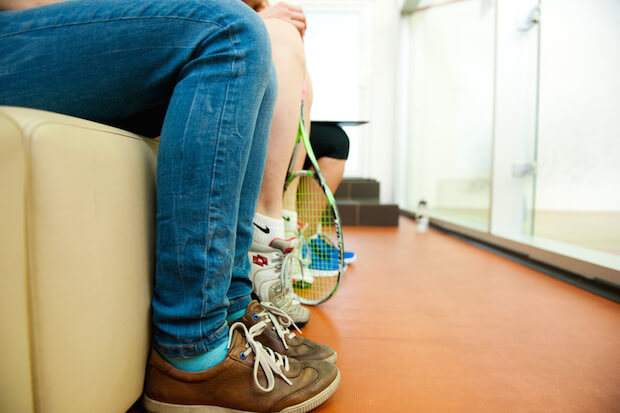
In follow up to our article on ‘What is social competence in teens? Why is it important?’, we thought it would be important to delve into the practical matter of being able to teach social competence to teens. It’s one thing to know you need it, it’s another to learn how to get it.
If your child’s ability to make friends has become a concern, it may be wise not to ignore your ‘gut’ when it comes to teaching social skills, or encouraging them in your child.
In our last article on this topic (see link above), we mentioned that popularity may be related to higher levels of social competence. We also learned that the better social life a child or teen has, the more likely they are to form healthy relationships as adults, and avoid mental health issues they may be predisposed to.
So how do we balance out the extremes of social skills in teens? How do we ‘level the playing field,’ so that all kids have the chance to make friends and, eventually, become well-functioning citizens of society?
According to this extensive article, kids and teens need to be taught social competence. And it doesn’t stop there; they need to practice it, just like any other learned skill that becomes habit. (We realize the design of the aforementioned article looks questionable and abandoned, but its content seems worthy of note for consideration).
Below we will discuss some strategies for teaching social competence in teens.
Get kids involved in sports or games to promote social competence
According to this article, playing sports – you guessed it – builds good “sportsmanship.” It makes sense. In sports kids learn how to follow rules, how to be fair, and how to limit their actions to the rules of the game. They also learn how to work in teams, and how to respect opponents (or at least, we would hope that is the case with the coach in charge).
This can happen with other games too, especially when multiple players are involved. Board games, for instance, can help with this skill as well.
Many times, this may involve a parent engaging their child in extracurricular activities outside school.
Teach lessons on diversity in the classroom, or advocate for them at your local school
If your child’s classroom teacher is not doing so already, you can ask them to teach diversity. This is especially beneficial if differences are becoming a problem in the school’s social environment. Becoming accepting of those who are different than you is a skill in empathy, and a way to promote inclusion for better social experiences.
We wrote some articles all about this:
- 3 Ways to manage diversity in the classroom
- 5 great activities to teach kids about multiculturalism in the classroom
Read books and use educational material dedicated to the topic of social skills training in adolescents
Sometimes, social skills need to be taught very literally. What may seem obvious to some (like saying “please” and “thank you”), won’t be obvious to others. There are materials out there that you can use to teach social skills to adolescents. Here are some we found:
On teaching empathy:
https://www.edutopia.org/pdfs/blogs/edutopia-taran-lesson7empathy.pdf
http://www.teachthought.com/pedagogy/quick-guide-teaching-empathy-classroom/
On helping kids form friendships:
https://www.education.com/reference/article/children-develop-social-competence/
Posters and classroom material (or consider making these yourself with the class):
Kids’ books on ‘Social Thinking:
https://www.socialthinking.com/Products
Group activities to promote social skills training (linked to above also):
http://www.behavioradvisor.com/SocialSkills.html (scroll to find these)
Plus you’ll also want to read up on the more research-based information on this topic, which is provided online by organizations such as this one:
http://www.casel.org/library-search/?type=Book
This will equip you, as the teacher, to know what you are aiming for, and when the desired outcomes are achieved.
Set a good example, by forming adult-like social competence
You may not enjoy hearing this, but if your child is suffering from a lack of social competence, it may have to do with what is happening in their home environment. The articles we’ve linked to in this article, and our former one on this topic, mention that aggression can be ‘learned’ from parents. How a child is raised can affect their behaviour.
And, it also appears that less-strict parents may produce kids with more social competence. However, as this article points out, balance is needed with any parenting, and social context could make a difference in outcomes.
Seek professional help for social skills training
If your child or teen is showing signs of problematic behaviour, it may be wise to consult a professional, as we mentioned in our last article on social competence. There are family therapists, for instance, who can help with individual children, parenting advice or otherwise. A doctor may also be able to help you assess potential neurodiverse conditions that could explain outlandish, unexpected and impulsive behaviours.
Don’t give up on social competence training!
Remember that learning social queues comes with time. You may realize that even as an adult, you are still learning about behaviours that were probably a mistake, and that you won’t want to repeat in your future relationships. Kids and teens are learning too. They are forming identities and realizing who they are. So, if your teen hasn’t transformed their personality overnight, remember that this may be a slow process. It may take some life lessons to fully form a mature adult out of them.
That said, don’t give up on the resources and tools you can use to teach these skills early in life. You may save your child a lot of frustrations by helping them learn from your wisdom!




